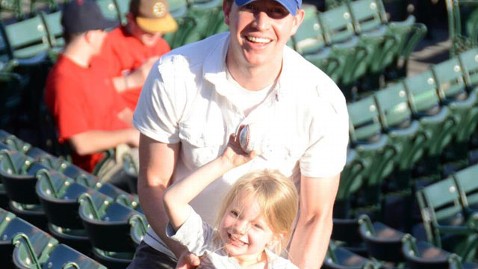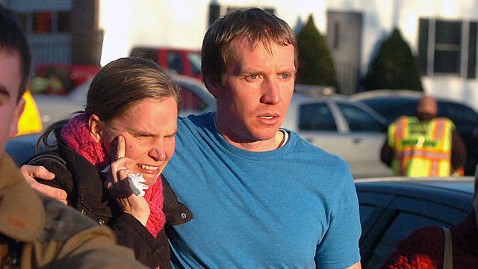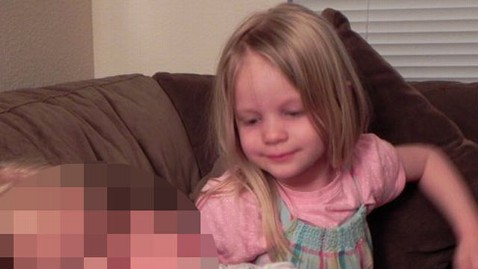
(Image credit: Emilie Parker Fund/Facebook)
Emilie Parker, the little girl with the blond hair and bright blue eyes, would have been one of the first to comfort her classmates at Sandy Hook Elementary School, had a gunman’s bullets not claimed her life, her father said.
“My daughter Emilie would be one of the first ones to be standing and giving support to all the victims because that’s the kind of kid she is,” her father, Robbie Parker said as he fought back tears, telling the world about his “bright, creative and loving” daughter who was one of the 20 young victims in the Newtown, Conn., shooting.
“She always had something kind to say about anybody,” her father said. ”We find comfort reflecting on the incredible person Emilie was and how many lives she was able to touch.”
Emilie, 6, was helping teach her younger sisters to read and make things, and she was the little girls would go to for comfort, he said.
“They looked up to her,” Parker said.
READ: Complete List of Sandy Hook Victims
Parker moved his wife and three daughters to Newtown eight months ago after accepting a job as a physician’s assistant at Danbury Hospital. He said Emilie, his oldest daughter, seemed to have adjusted well to her new school, and he was very happy with the school, too.
“I love the people at the school. I love Emilie’s teacher and the classmates we were able to get to know,” he said.

(Image Credit: Alex von Kleydorff/AP Photo)
The family dealt with another tragic loss in October when Emilie lost her grandfather in an accident.
“[This] has been a topic that has been discussed in our family in the past couple of months,” Parker said. “[My daughters ages 3 and 4] seem to get the idea that there’s somebody who they will miss very much.”
Emilie, a budding artist who carried her markers and pencils everywhere, paid tribute to her grandfather by slipping a special card she had drawn into his casket, Parker said. It was something she frequently did to lift the spirits of others.
“I can’t count the number of times Emilie would find someone feeling sad or frustrated and would make people a card,” Parker said. “She was an exceptional artist.”
The girl who was remembered as “always willing to try new things, other than food” was learning Portuguese from her father, who speaks the language.

(Image Credit: Emilie Parker Fund/Facebook)
On Friday morning, Emilie woke up before her father left for his job and exchanged a few sentences with him in the language.
“She told me good morning and asked how I was doing,” Parker said. “She said she loved me, I gave her a kiss and I was out the door.”
Parker found out about the shooting while on lockdown in Danbury Hospital and found a television for the latest news.
“I didn’t think it was that big of deal at first,” he said. “With the first reports coming in, it didn’t sound like it was going to be as tragic as it was. That’s kind of what it was like for us.”
CLICK HERE for full coverage of the Sandy Hook shooting.
Parker said he knows that God can’t take away free will and would have been unable to stop the Sandy Hook shooting. While gunman Adam Lanza used his free agency to take innocent lives, Parker said he plans to use his in a positive way.
“I’m not mad because I have my [free] agency to use this event to do whatever I can to make sure my family and my wife and my daughters are taken care [of],” he said. “And if there’s anything I can do to help to anyone at any time at anywhere, I’m free to do that.”

(Image credit: Emilie Parker Fund/Facebook)
Friday night, hours after he learned of his daughter’s death, Parker said he spoke at his church.
“I don’t know how to get through something like this. My wife and I don’t understand how to process all of this,” he said today. “We find strength in our religion and in our faith and in our family. ”
“It’s a horrific tragedy and I want everyone to know our hearts and prayers go out to them. This includes the family of the shooter. I can’t imagine how hard this experience must be for you and I want you to know our family … love and support goes out to you as well.”









